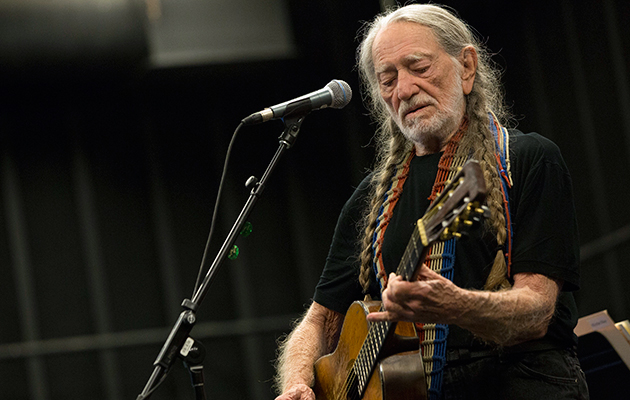Does he remember hearing Cline’s version of ‘Crazy’ for the first time?
“I loved it,” he nods. “She didn’t like it. She was in, I think, two days trying to record it, and it just wasn’t coming off. And Owen Bradley, who produced it, finally told her, ‘Patsy, quit trying to sound like Willie, and quit trying to phrase like Willie, go ahead and sing it like Patsy.’ And she did, and the first take she got it, and the rest you know.”
Nelson is certainly one of very few artists who could get away with endowing an album with so definitive and proprietorial a title as Country Music. On the strength of the diffidence he projects in person, it’s tempting to suppose that the title of Country Music happened simply because he couldn’t think of anything else. When the matter is raised, however, he becomes suddenly animated.
“I said at one point,” he says, “we should call it Country Music, In Case You Forgot. Because country music as most people have known it over the years has gone through a lot of changes – a bigger sound, people trying to go pop, and trying to make it something other than what, in my opinion, it’s really supposed to be. Which is fiddles, guitars, steel guitars, mandolins, and people singing.”
The fascinating, infuriating mystery of country music, though, is that it, like no other form of song, is so much more complicated and difficult than it sounds. The chords are generally open and predictable. The words are usually sincere and straightforward. So why can’t anyone write “Hello Walls” (as Nelson did for Faron Young) or “Blue Eyes Crying In The Rain” (as Fred Rose did, and which Willie Nelson covered on his 1975 Outlaw Country classic Red-Headed Stranger)? If anyone knows the definition of the difference between country greatness and generic hackwork, it’s surely Willie Nelson.
“Consciously,” he says, “I don’t. But there’s that thing when you hear something and just know immediately that it’s really good – whether it’s commercial good, I don’t always know, but that’s not the important thing. Simplicity is the hardest thing to come up with.”
This irony clearly tickles him: the observation ends, like many of Nelson’s sentences, with a throaty chuckle. The album leads off with just such a song, a revisiting of Nelson’s beginnings as a songwriter: the wistful shuffle “Man With The Blues”.
“I wrote it probably 50 years ago,” he says, “when I was a disc jockey in Vancouver, Washington. The original record was done in someone’s basement. Ronnie McCoury was on the Country Music sessions, and his family – the McCoury family, the bluegrass group – had recorded that song so he requested it. I hadn’t thought about it in years. I thought it was a pretty good song. It kind of fits the album. I don’t think it’s any better than anything else on there, but I don’t think it’s any worse.”



